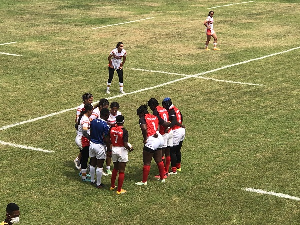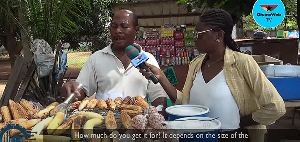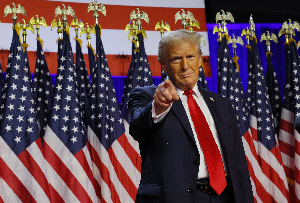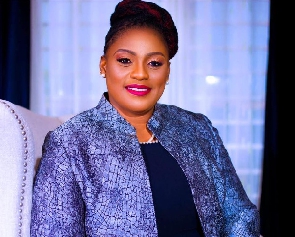Tamale, July 16, GNA - The Member of Parliament for Lawra/Nandon, Dr. Benjamin Kunbuor, has called for affirmative action in policy to redress the historical imbalance in Northern Ghana.
He said the African Peer Review Report on Ghana testified to this developmental disparity and that should form a core issue in policies for the programme of action of the report.
Dr. Kunbuor made the call when he presented a paper on "Going Back Into The Future - Background To The Issue Of Poverty In Northern Ghana," at a two-day workshop on NEPAD/APRM and Poverty Reduction in Northern Ghana in Tamale on Friday.
The occasion was also used to launch a Manual on "Good Governance and Development for District Assemblies and other Agents of Governance". The clergy, chiefs, some Members of Parliament, district chief executives, heads of departments and agencies, NGOs and academia from the Northern, Upper East and Upper West regions attended the forum, which was on the theme: "NEPAD/APRM and Poverty Reduction in Northern Ghana".
The Tamale Ecclesiastical Province Pastoral Conference (TEPPCON) a Church NGO dedicated to addressing the spiritual, social, economic and political issues affecting the people of the five Catholic dioceses of the North, organised the workshop with sponsorship from the Konard Adenauer Foundation (KAF), a German NGO.
Dr. Kunbuor said even though the North suffered most from the slave trade, its benefits went to outsiders and this had resulted in the low incomes or no income at all for the people, pointing out; "This is an excess baggage Northern Ghana carried into the colonial and post colonial eras".
He mentioned deficiency and deprivation of both material and non-material resources as some of the factors that accounted for poverty in the North and said there was therefore the need to consider Northern Ghana as a peculiar poverty entity but not as three regions against other regions in Ghana.
Dr. Kunbuor said, "If there is no clear conceptual grounding of what Northern Ghana is, policy interventions and struggle for contest over resource allocation would become meaningless. That is why we can hear statements such as there are poor communities everywhere in Ghana, what then makes our case unique".
The MP noted that the lack of policy to address the pre-colonial, colonial and post-colonial developments, which dissipated resources, also took away the voice and created vulnerability and exclusion. Mr Donald Amoah, Director of World Neighbours, an NGO, who gave an "overview of the poverty situation in Northern Ghana", said it was unacceptable in the 21st century for people in the North to be suffering from food hunger and called for sustained policy framework to address the situation.
He attributed the marginalisation of the North to Northern politicians, who were polarized on political party lines and were not providing the leadership roles the North needed.
"Northern politicians, especially MPs have failed us. They are not able to influence politics on the ground, because they have varied political opinions.
"We also have weak NGOs, religious organisations, youth groups and traditional rulers to champion the course of the North", he said. Mr Amoah said party loyalty and considerations was making it impossible for Northerners to have a common voice. "We are not organised and we are aligning ourselves to political parties in the country to disorganise us. Because of our poverty, we become gullible to their influence", he said.
He called on Northerners to see poverty as their number one enemy and fight a relentless war against it, pointing out that democracy and good governance was all about poverty.
Mr Amoah urged Northerners to sit up and address the issues of poverty themselves, as political leaders had paid lips-service to the poverty situation in the North. 16 July 06
General News of Sunday, 16 July 2006
Source: GNA
















